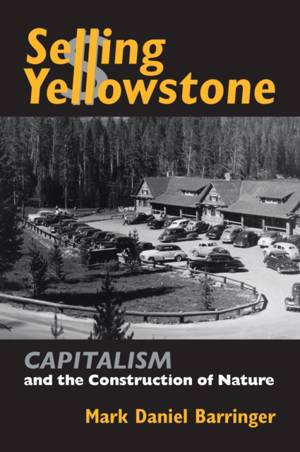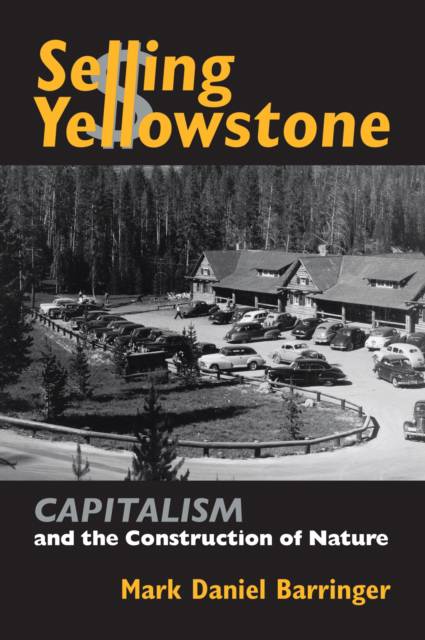
Bedankt voor het vertrouwen het afgelopen jaar! Om jou te bedanken bieden we GRATIS verzending (in België) aan op alles gedurende de hele maand januari.
- Afhalen na 1 uur in een winkel met voorraad
- In januari gratis thuislevering in België
- Ruim aanbod met 7 miljoen producten
Bedankt voor het vertrouwen het afgelopen jaar! Om jou te bedanken bieden we GRATIS verzending (in België) aan op alles gedurende de hele maand januari.
- Afhalen na 1 uur in een winkel met voorraad
- In januari gratis thuislevering in België
- Ruim aanbod met 7 miljoen producten
Zoeken
€ 46,45
+ 92 punten
Omschrijving
For over a century, Yellowstone National Park has been a monument to wildness in America. But long before flames swept through Yellowstone in 1988, that wildness had come under fire from encroachments that were making the park one of our nation's most commodified pieces of real estate. For as long as they've existed, parks like Yellowstone have been the scene of some of the most intensive commercial activity in the American West. Selling Yellowstone recounts the story of such activities in our oldest park from the 1870s through the 1960s. It is the first book to examine critically the place of business in the development of America's national parks, demonstrating the prominent role played by profit-driven entrepreneurs in shaping the physical landscape of what is generally perceived as unaltered wilderness. Challenging popular perceptions that our national parks are protected from commercialism, Mark Barringer reveals how businessmen, with the support of the National Park Service, marketed Yellowstone as a museum of mythology: a landscape created to look like what Americans wanted to believe the Old West once was. Together, the NPS and the concessionaires--particularly Harry W. Child's Yellowstone Park Company--altered the park repeatedly to fit a desired image and then creatively promoted it for mass consumption. As a result, the concessionaires virtually owned Yellowstone, selling it piecemeal to receptive customers as if it were an inexhaustible commodity. First marketed as a nature museum to be viewed from the comfort of stagecoach seats or hotel room windows, the park was transformed from a wilderness preserve to a series of roadside attractions. Roads were built to geysers and waterfalls; wolves were eliminated and bison were bred; visitors were given a choice between comfortable hotels and more rustic lodges and camps. The Yellowstone Park Company sought to meet all of the public's expectations, reaping the profits from satisfying American idealizations. Contemporary environmental attitudes eventually forced significant policy changes in the parks, but shifting political winds continue to determine such matters as snowmobile access to Yellowstone. Barringer's book contributes to the ongoing debate over the character and limits of the social construction of nature as it raises important questions about what our national parks represent, why so many people continue to feel so strongly about them, and what must be done to protect them.
Specificaties
Betrokkenen
- Auteur(s):
- Uitgeverij:
Inhoud
- Aantal bladzijden:
- 248
- Taal:
- Engels
- Reeks:
Eigenschappen
- Productcode (EAN):
- 9780700611676
- Verschijningsdatum:
- 13/05/2002
- Uitvoering:
- Hardcover
- Formaat:
- Genaaid
- Afmetingen:
- 158 mm x 236 mm
- Gewicht:
- 585 g

Alleen bij Standaard Boekhandel
+ 92 punten op je klantenkaart van Standaard Boekhandel
Beoordelingen
We publiceren alleen reviews die voldoen aan de voorwaarden voor reviews. Bekijk onze voorwaarden voor reviews.









